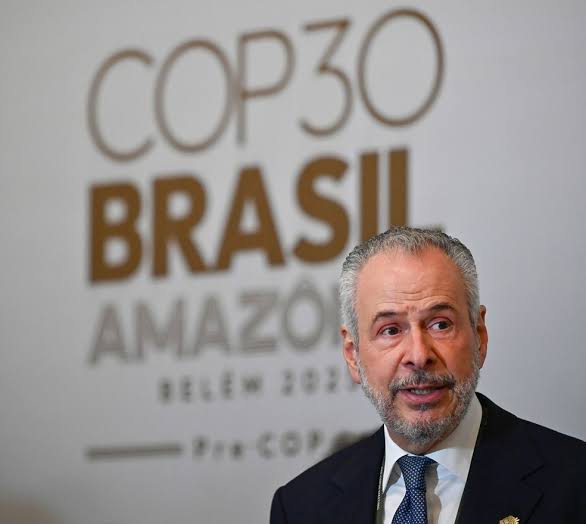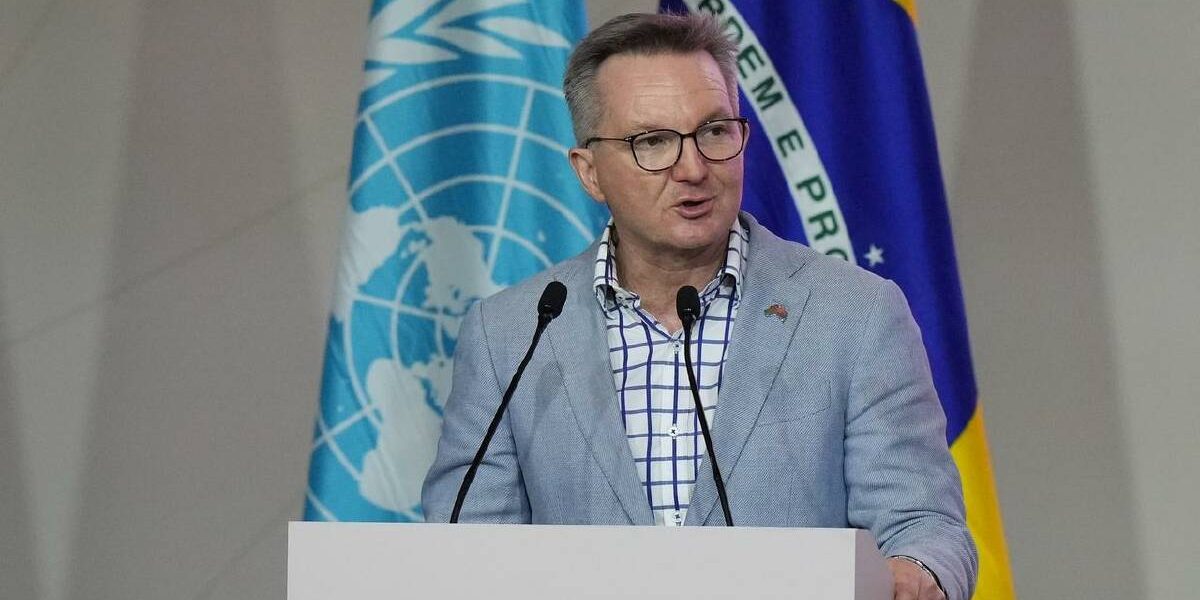Turkey has been confirmed as the host nation for COP31, ending Australia’s campaign to bring next year’s global climate summit to the Pacific.
The decision followed intense negotiations at COP30 in Belém, Brazil, and resulted in a rare dual-leadership compromise granting Australia a central role in steering the 2026 climate negotiations.
Pacific nations—many on the frontline of climate change—say they will be watching closely to ensure their priorities are elevated when the COP31 process begins.
The region expects both Turkey and Australia to carry forward the urgent calls for climate finance, fossil fuel phase-out, ocean protection, and support for vulnerable island states.
Australian Climate Change Minister Chris Bowen, pictured, outlined the unique arrangement reached after one country lodged an objection to Australia’s bid—an action that automatically triggers a shift in the selection process.
He said this during a press conference in Belem Brazil on Thursday.
Bowen confirmed that:
“Turkey will host COP31 and serve as the formal COP President, managing the venue and logistics.”
Australia will serve as “COP President for the purposes of negotiations,” giving it full authority to oversee negotiation processes.
“So it will be Australia as President of the COP for the purposes of negotiations.
“And Turkey would be the COP President t for the purposes of being the host.
“I would be the COP President for the purposes of the negotiations, working to ensure, good outcomes,” he added.
This includes appointing co-facilitators, preparing draft negotiation texts, and shaping the final “cover decision”—the key political statement issued at the end of each COP.
Bowen described the compromise as:
“A significant concession for both sides—but necessary when you’re trying to find consensus,” he said.
He noted that Australia had strong support within the Western European and Others Group (WEOG), but a single objection—allowed under UN rules—was enough to block its hosting bid.
The dual arrangement is being welcomed by some Pacific leaders, who believe Australia’s role in negotiations may help secure stronger commitments for small island states.

Meanwhile, at the press conference in Belem President Luiz Inácio Lula da Silva, who hailed COP30 in Belém as “the best COP ever.”
He praised the massive public turnout and the strong presence of Indigenous peoples, youth, and civil society groups.
“Showing the Amazon as it truly is was critical,” Lula said. “Climate change is now a grave threat to humanity.”
Brazilian Environment Minister Marina Silva announced that Germany has pledged €1 billion to the Tropical Forests Forever Fund (TFFF), boosting global efforts to protect tropical forests. She also confirmed that Brazil had delivered its formal support for a major ocean biodiversity agreement to the United Nations.
COP30 President Ambassador André Corrêa do Lago said the summit marked a transition from negotiation to implementation, with major scientific and civil society initiatives advancing across both the Green and Blue Zones.
President Lula used the moment to urge nations—especially wealthy ones—to support forest protection, ocean health, and the energy transition. He said climate change must no longer be treated as an abstract or academic issue.
“Caring for the climate is caring for the planet’s survival,” he stressed.
Lula said public participation far exceeded expectations, proving Belém was the right choice for COP30. He insisted the summit belonged not to leaders but to “the peoples of the world.”
With the dual leadership structure now confirmed, attention turns to COP31 in Turkey—where the Pacific region expects its urgent climate priorities to be front and centre.
Australia’s leadership in the negotiation process and Turkey’s role as host are seen as critical in determining whether COP31 can deliver stronger, more ambitious global climate action in 2026.
By ULUTAH GINA
Solomon Star, Gizo
Note: This story was produced as part of the 2025 Virtual Climate Change Media Partnership, a journalism fellowship organized by Internews’ Earth Journalism Network and the Stanley Center for Peace and Security.









